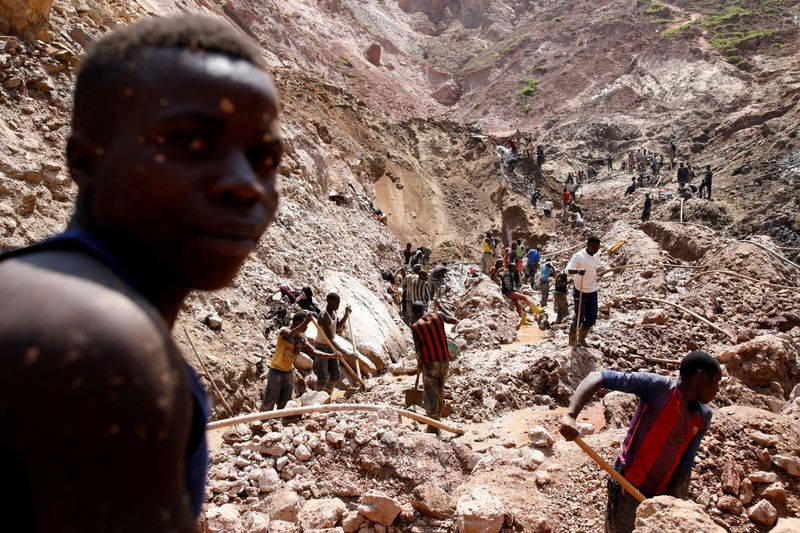By Felix Njini
JOHANNESBURG/WASHINGTON (Reuters) – The U.S. must boost commercial ties with African countries to curb reliance on China for supplies of critical minerals, a Washington-based think tank said on Tuesday.
“U.S. economic and national security depend on securing a reliable supply of critical minerals, including from Africa,” the United States Institute of Peace said in a report.
The U.S. is almost 100% reliant on “foreign entities of concern,” mainly China, for key critical minerals, it said, and must come up with own sources of supply to avoid being shorthanded and vulnerable to China’s export curbs.
Western mining companies are lagging Chinese rivals in the race to tap Africa’s abundant mineral resources, key to sectors from electric vehicle manufacturing to defence industries.
To counter China’s head start in Africa, Washington must roll out “more vigorous commercial diplomacy with a keen eye toward building critical minerals partnership in Africa,” the 76-page report said.
One option for the U.S. would be to increase commercial diplomacy in countries such as Democratic Republic of Congo, the world’s No. 1 cobalt supplier, and Zambia, Africa’s second-largest producer, it said.
The competition for securing minerals in Africa is heating up as cash-rich Middle East firms join the race.
While Western mining companies still see hurdles in investing in countries such as Congo, which lacks vital infrastructure such as roads and adequate electricity, Chinese miners have strengthened their grip in the country and are broadening investment throughout Africa.
The International Development Finance Corporation said in February it could scale up project financing in Africa to help reduce the risk of investing in countries including Congo that some investors still perceive as high risk.
Unlocking U.S. investment in Congo could be helped by reopening its consulate in Lubumbashi that closed in the 1990s after the end of the Cold War, Tuesday’s USIP report said.
The government also needs to prioritize full development of a memorandum of understanding with Congo and Zambia which could help guide U.S. private investors across the battery metals supply chain, it said.
The U.S. has stepped in to back the Lobito Corridor, a rail link from the central African copper belt that’s key to export of metals through Angola’s Lobito port.
The U.S. is “simply not on, or even near, par in competing with China” for critical minerals investment and diplomacy in Africa, and needs to take a vigorous approach, USIP said.

Jose Fernandez, the U.S. State Department’s under secretary for economic growth, energy, and the environment said last month the U.S. holds regular talks with Congo state miner Gecamines.
Still, the U.S. government is unlikely to match the resource levels and the mining ecosystem that China wields in winning mining contracts, USIP said, though “concerted U.S. efforts to land U.S. mining investment in Africa can succeed.”

